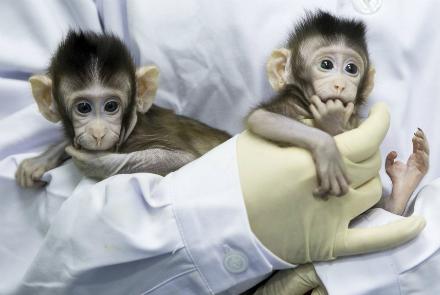Chinese scientists who successfully created the world’s first cloned monkeys have said that they have no plans to conduct similar research on humans.
The birth of Zhong Zhong and Hua Hua, two identical long-tailed macaques, made them the first primates to have been cloned using the same technique that produced Dolly the sheep two decades ago, channelnewsasia.com reported.
The experiment has been hailed for breaking a key technical barrier with the potential of furthering human disease research. But it has also raised ethical concerns, with critics arguing that this could possibly be one step closer to human cloning.
"We have no plan to clone humans, and social ethics would by no means allow that practice," Xinhua cited Muming Poo, co-author of the macaque study, as saying.
While theoretically humans can be cloned, said Poo, who directs the Institute of Neuroscience (ION) and Center for Excellence in Brain Science and Intelligence Technology, the Chinese Academy of Sciences, the research is aimed at better understanding and treating human brain diseases, such as Alzheimer's and autism, channelnewsasia.com reported.
The cloning of macaques would greatly reduce the number of monkeys used for animal testing in labs and help preserve endangered animals, Poo added.


